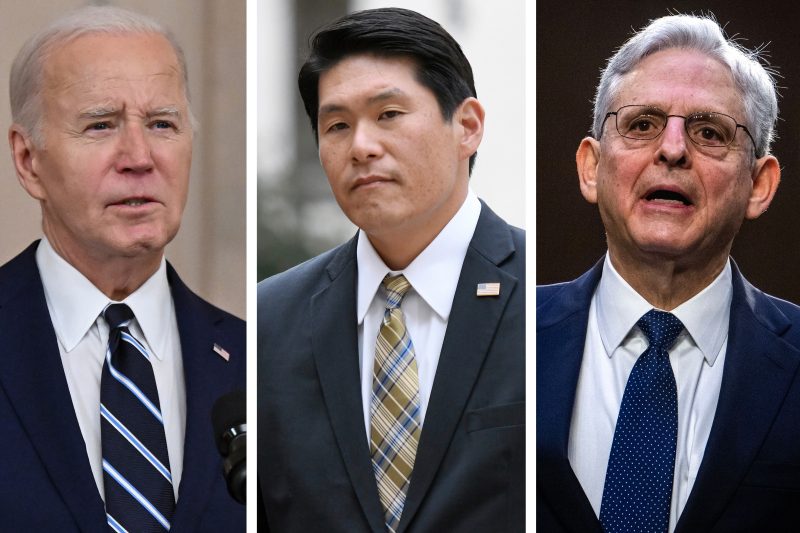In recent days, tensions between the White House and the Department of Justice have escalated significantly as the highly anticipated testimony of former Deputy Attorney General, Rod Rosenstein, draws near. Rosenstein’s upcoming appearance before the congressional committee has fueled a growing sense of unease within both institutions, raising concerns about potential fireworks during his testimony on Capitol Hill.
One of the key topics expected to dominate Rosenstein’s testimony is his role in the controversial firing of former FBI Director, James Comey. This event, which occurred in May 2017, sent shockwaves through the political establishment and triggered a chain of events that eventually led to the appointment of Special Counsel Robert Mueller to investigate Russian interference in the 2016 presidential election.
It is widely believed that Rosenstein’s recollections of his interactions with President Trump leading up to Comey’s dismissal could have significant implications for the ongoing investigations into possible obstruction of justice and collusion with Russia. The former Deputy Attorney General’s testimony will be closely watched by lawmakers, legal experts, and the public alike, as it could provide crucial insights into the inner workings of the Trump administration during a tumultuous period in American politics.
Additionally, Rosenstein is also expected to face tough questions about his decision to appoint Mueller as Special Counsel and the circumstances surrounding his handling of the investigation. Speculation has been rife about potential conflicts within the Department of Justice over the scope and direction of the probe, and Rosenstein’s testimony could shed light on the internal dynamics that have shaped one of the most consequential investigations in recent memory.
The White House, for its part, is said to be bracing for potentially damaging revelations from Rosenstein’s testimony, with President Trump reportedly expressing frustration over the ongoing investigations and their impact on his administration. The prospect of Rosenstein sharing new information about his interactions with Trump and other senior officials has fueled concerns within the White House about the potential fallout from his appearance before Congress.
As Rosenstein prepares to testify, the stakes are high for both the White House and the Department of Justice. His testimony has the potential to reshape the narrative surrounding the Trump administration’s actions in the lead-up to and aftermath of the 2016 election, and could have far-reaching consequences for the ongoing investigations into Russian interference. With tensions running high and the political climate more charged than ever, all eyes will be on Capitol Hill as Rosenstein takes center stage in one of the most closely watched hearings in recent memory.



























